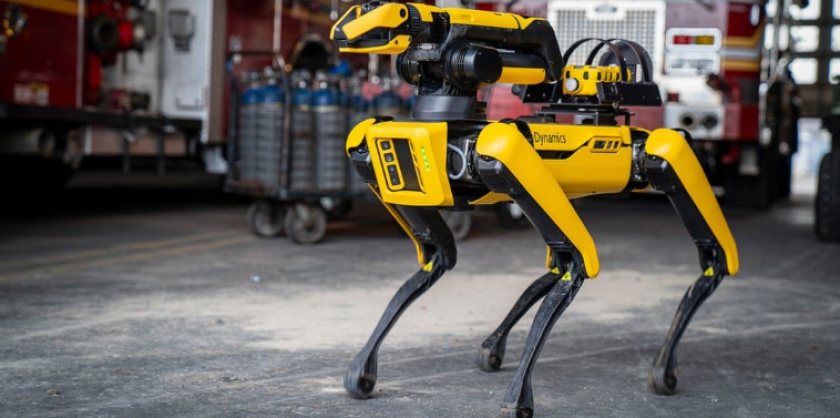-
Its new State Data Hub offers a centralized platform for information on state topics ranging from housing to education. It is intended to simplify access to the details, both for decision-makers and the public.
-
In the Carolinas, ICF drones have conducted rapid damage assessments in a 100-mile zone following Hurricane Helene as part of a geospatial initiative to speed up federal recovery funding requests.
-
The new “Captain Record” tool from the Indiana Secretary of State’s Office leverages artificial intelligence to more efficiently find unstructured data from tens of millions of state records.
More Stories
-
The Pennsylvania Generative AI Pilot Program report revealed that the technology can save employees time — on average, 95 minutes a day — and simplify tasks, but human nuance remains essential for effective use.
-
When Frederick County Public Schools in Maryland was building a new school, the district's chief information officer suggested building a server room to provide backup support to other schools in the district.
-
Security experts are currently tuned in to FedRAMP program changes and the potential impact on the way businesses work with government agencies. Some outcomes from its emerging 20x initiative will likely take time to become clear.
-
Gov. Greg Abbott announced the debut Wednesday of the Naloxone Distribution Interactive Map, which shows where to get the opioid overdose-reversing drug. The state required tracking of overdoses starting in late 2023.
-
The New York Institute of Technology and HelioCampus are piloting AI Insights, a chatbot with a "semantic layer" to understand conversational language so that less tech-savvy users can still get reliable analytics.
-
Data plays an essential role in governance, and a new report from the Open Technology Institute illuminates an urgent need for public-sector adoption of technologies that help enable secure use of data.
-
Minnesota wants widespread roadside drug testing, but pilot data reveals key limitations and practicality concerns agencies must consider. Government Technology broke down the data within "spit" test discrepancies.
-
Women are increasingly exploring nontraditional channels to enter into the cybersecurity workforce, according to a survey and recent analysis from a cybersecurity professionals member association.
-
Government Technology mapped the current landscape of chief data officers at the state level to reveal where data leadership has been established and where it lags. Just more than half of states have a CDO.
-
The state Department of Information Technology will onboard a veteran private-sector executive with deep experience in artificial intelligence, analytics and large-scale collaboration. He'll start later this month.
-
The district is using data and technology to transform how it connects people experiencing homelessness to shelters with beds during hypothermia season. Calls to a key service hotline have dropped significantly as a result.
-
Nearly two dozen cities have been awarded the What Works Cities Certification, which recognizes localities for data usage to inform policy and funding, engage residents, evaluate programs and improve services.
-
A Washington, D.C.-based nonprofit has created a platform where government workers and others can share how federal contract terminations, staff cuts and data issues impact their work without using personal information.
-
The traffic management firm has released a new "Collision Index" designed to give police, public works and road planners better data about where accidents happen and how to fix those problems.
-
A fledgling push to promote reforestation and climate mitigation relies on interactive maps and tracking tools. The state also hopes to plant more trees into "disadvantaged communities" by 2033.
-
Caught in data turbulence, local and state government must adapt to changes in federal transparency — or face data bias. A new landscape raises questions about the future of open data and evidence-based policymaking.
-
A global survey of law enforcement reveals the top tech tools, from those empowering criminals to those aiding law enforcement. The North American data reveals unique challenges and priorities.
-
Garbage trucks in Scottsdale, Ariz., were recently equipped with dashcams that offer a comprehensive view of operations inside and out. The results are helping exonerate the municipality from frivolous damage claims.





























